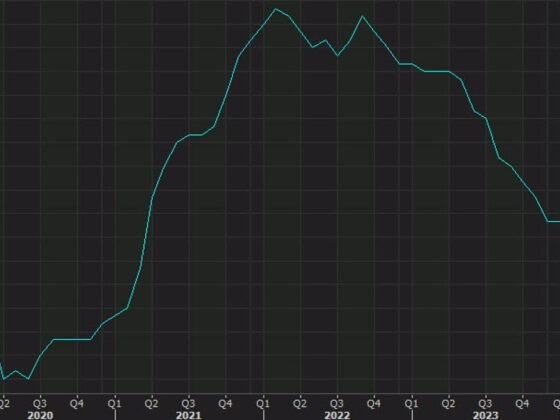
A short-term saver? Say thanks to the Federal Reserve.
One benefit of the Fed’s interest-rate hikes aimed at wresting control over inflation is that savers looking for a safe investment for a year or less can now get the best yields in ages from Treasury bills, or T-bills.
Savings rates have jumped from just about zero to more than 4% in the past 12 months on these short-term securities issued by the federal government. On Jan. 24, a one-year T-bill was yielding 4.7%, up from a rate of 0.57% a year ago. A six-month T-bill was at 4.82% on Jan. 23, compared with 0.36% last January, and the three-month T-bill was yielding 4.58%, up from 0.13%.
And as long as the Fed keeps interest rates high — which seems likely after Wednesday’s quarter-point hike — investing short-term money in T-bills has a certain drama-free appeal with modest returns.
While this is not a get rich quick scheme, “T-bills currently offer savers better yield than most online savings accounts and short-term [certificates of deposit],” Ken Tumin, a senior industry analyst at LendingTree and founder of DepositAccounts.com, told Yahoo Finance.
What are T-bills
Treasury bills — like i Bonds and Treasury inflation-protected securities, or TIPS — are issued by and backed by the U.S. government. I bonds, for example, pay interest for up to 30 years. T-bills are the ticket for people looking for short-term savings of up to a year.
Additionally, savers can reap tax savings on T-bills, which are exempt from state and local income tax.
“That can make a 4.6% yield equivalent to a 5% yield for a CD in a state with an income tax,” Tumin said.
How T-bills works
T-bills are sold at a discount to their face value; when the bill matures, your interest is the difference between what you paid and the T-bill’s face value. For example, if you bought a $1,000, one-year T-bill at a rate of 4%, you would shell out $960 upfront and receive $1,000 at the end of the year.
You must buy on auction dates, which occur weekly for all maturities, except the one-year T-bill, which is set for every four weeks. Most individual investors make a noncompetitive bid, which means you land the average yield set at auction. (Emergency funds might be best held in high-yield savings accounts.)
Want to sell before the maturity date? That can be “a bit of a hassle,” Tricia Rosen, a financial planner and founder of Access Financial Planning, told Yahoo Finance.
When you buy through TreasuryDirect — the government’s website — you must hold new Treasury marketable securities for at least 45 calendar days before transferring or selling them (even if it’s a four-week security). Interest is paid when the security reaches maturity.
You won’t pay a penalty or fee if you want to hop out early like you would if you withdrew from a CD early. However, you could possibly lose money, if the sale price of the T-bill is lower than the original purchase price, which you are guaranteed at maturity.
“For individual investors, Treasury bills may be better suited as a way to diversify your portfolio rather than a replacement for your emergency savings,” said Greg McBride, senior vice president and chief financial analyst at Bankrate.com. “If you had an unplanned expense and needed to sell prior to maturity, you wouldn’t be able to sell it on TreasuryDirect but would first have to transfer it to a bank, broker, or dealer.”
Where to purchase T-bills
You can buy newly issued Treasuries in terms ranging from four weeks to 52 weeks through your bank or brokerage, which may charge a commission. Or, you can buy them online for a minimum of $100 through the government’s TreasuryDirect program, with no commission.
Large firms, however, such as Charles Schwab, Fidelity, and Vanguard, do not charge a fee when you buy a T-bill. That said, the minimum order for a new-issue Treasury is typically $1,000 in face value when you purchase it via a brokerage. And if you want to purchase T-bills for individual retirement accounts (IRA) accounts, you must go through a broker. For those nearing retirement, these can be a smart place to set aside cash without the worry of what’s going to happen with the stock market.
“T-bills are paying a slightly higher rate than other short-term investments, and the Treasury Direct website is easier to navigate than it was a few months ago before they revamped it,” Rosen said. “So it’s a good idea for someone who is in a high tax state.”










